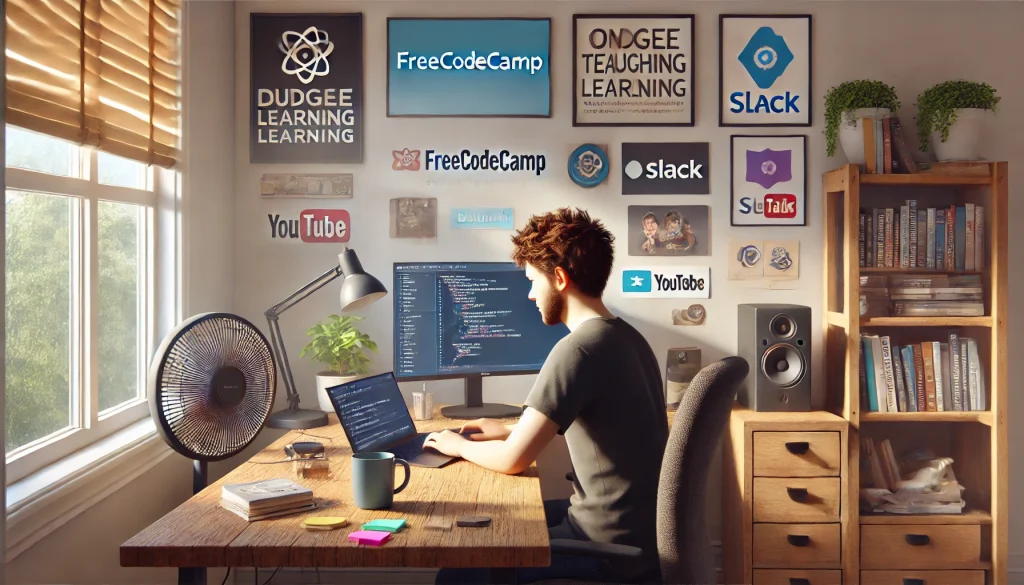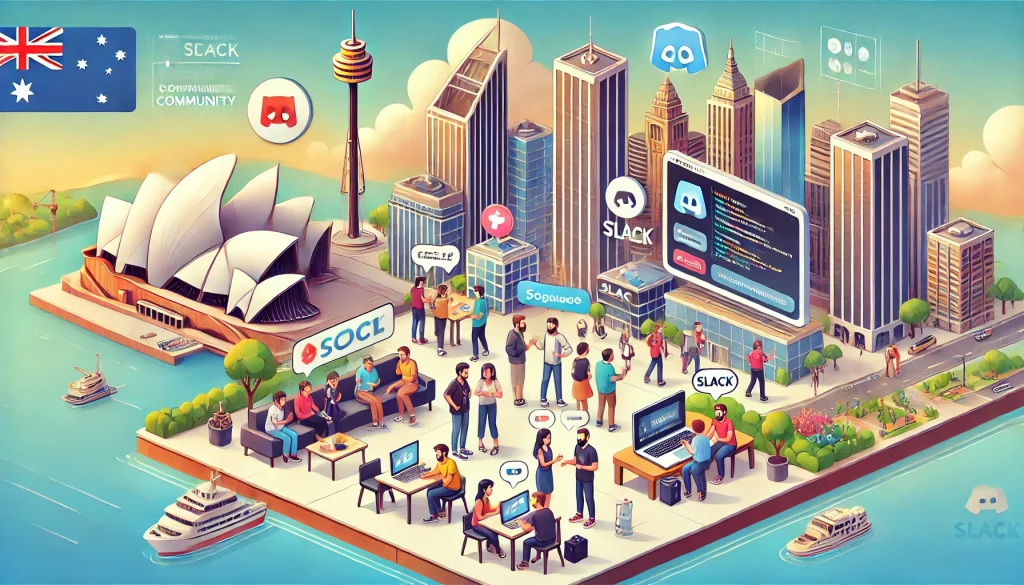As Australia experiences a technology boom, more people than ever—students, career-changers, hobbyists—are jumping into coding without the hefty cost of traditional degrees. Thanks to free online coding resources and community-led bootcamps, programming is no longer restricted to those who can afford formal schooling. Below, we uncover how DIY coding is taking hold in Australia, showcase self-taught success stories, and examine how these resources help meet job market demands.
1. The Rise of Free Coding Resources in Australia
1.1 Online Platforms & MOOCs
- Global Options: Sites like freeCodeCamp, Codecademy’s free modules, and Coursera’s open courses serve Aussie learners as well, bridging universal coding fundamentals.
- Local Alternatives: Some Aussie-based resources or local library-run classes introduce web dev or Python. Government agencies, like Digital Transformation Agency, sometimes run pilot modules for digital upskilling.
Impact:
- Easy to access from any device, these platforms remove cost barriers and let dev hopefuls pace themselves alongside day jobs or other life responsibilities.
1.2 Community Forums & Slack Channels

- Aussie Dev Slack: Dozens of Slack or Discord groups revolve around Aussie dev communities, fostering Q&A, project collaborations, and job postings.
- Meetups: City-specific or online meetups frequently feature free coding crash-courses, hosted by volunteers or local dev shops.
Outcome:
- Learners gain real-time feedback from peers, forging accountability and learning alliances that replicate the camaraderie of in-person training.
2. Community-Led Bootcamps: A New Wave
2.1 Volunteer-Driven Camps
- Weekend Workshops: Groups like Rails Girls or NodeSchool chapters occasionally host free weekend intensives, letting novices build a small app or site.
- Sponsor Support: Tech companies or councils donate venues, coffee, or volunteer mentors, ensuring minimal costs for participants.
Case:
- OzJS Weekend in Melbourne, which focuses on JavaScript fundamentals. Mentors from local startups guide small groups on building single-page apps.
2.2 Hybrid Approaches
- Low-Cost vs. Free: Some community bootcamps charge minimal fees just to cover overhead, but keep it significantly cheaper than formal coding academies.
- Peer Mentorship: Graduates often come back as TAs or mentors, creating an ecosystem of continuous learning.
Outcome:
- For those seeking more structure than random online tutorials, these small, friendly cohorts can fill the gap—balancing real-world project setups with collaborative problem-solving.
3. Success Stories from Self-Taught Aussie Developers

3.1 Meet Dev Turned Data Analyst: Sarah Huang
- Background: A Brisbane-based accountant who lost her job in a corporate restructuring.
- Learning Path: Took advantage of freeCodeCamp and YouTube-based data science tutorials. Completed a community-run Python bootcamp at her local library.
- Result: Landed a data analyst role at a mid-sized fintech—says her “portfolio of self-driven projects” impressed recruiters more than formal degrees.
Key Lesson:
- Combining free resources with active local communities can yield fast upskilling for in-demand fields like data analysis or AI modeling.
3.2 From Retail to Web Dev: Tom Dickens
- Pivot: A store manager in regional New South Wales with an interest in tech but no formal background.
- Journey: Started with Codewars challenges, hopped into Slack communities, eventually built a React-based e-commerce site for a friend’s small business.
- Outcome: Now a front-end dev at a major Aussie retailer’s e-commerce team, championing the free learning path he used.
Value:
- Showcases how real-world side projects can prove competence to employers, sidestepping conventional education requirements.
4. The Job Market & Democratizing Tech Skills
4.1 Meeting Industry Demands
- Skill Gaps: Aussie companies require devs in AI, full-stack web, cybersecurity—areas that can be learned, at least at entry level, through self-study or community bootcamps.
- Cost-Effectiveness: Employers see potential in self-taught candidates who display resourcefulness and problem-solving. They might even sponsor advanced certifications after hiring.
Recruiter Insight:
- Harriet Lau, a Sydney-based tech recruiter, says “We see more self-taught devs excelling at interviews, armed with GitHub portfolios. The stigma of not having a comp sci degree is fading.”
4.2 Inclusive Opportunities
- Underrepresented Communities: Women in Tech, Indigenous dev groups, or newly arrived immigrants can tap free resources to break into coding—areas historically underrepresented in Australia’s tech workforce.
- Local Partnerships: Some city councils or nonprofit accelerators offer scholarships or free laptops, bridging the digital divide for lower-income students.
Potential:
- As dev roles expand across industries (health, finance, retail), the pipeline of self-taught devs broadens diversity and local talent pools, fostering a more inclusive ecosystem.
5. Tips for Success in DIY Coding
- Project Portfolio: Build actual apps or data projects—tangible examples weigh heavily in hiring decisions.
- Join Communities: Slack channels, meetups, or local bootcamps keep you accountable, let you network.
- Apply Early: Even if not “expert,” practical knowledge can get you junior dev roles, where on-the-job learning cements your progress.
- Stay Current: Follow Aussie dev podcasts, subscribe to newsletters highlighting local meetups or changes (like new JS frameworks or big data tools).
- Get a Mentor: Even informal mentors can help you navigate advanced topics or career moves.
6. The Future: Expanding the Free Learning Ecosystem
- Online Bootcamp Growth: Expect more advanced (free) programs focusing on AI or cybersecurity fundamentals, bridging skill gaps at scale.
- Corporate Sponsorship: Aussie companies might sponsor large Slack-based “mega communities” or offer micro-credential badges recognized in HR processes.
- Government Initiatives: Could see TAFE expansions or short courses merging free content with official certificates, further legitimizing self-paced coding paths.
Conclusion: As the job market demands agile dev skillsets, the synergy of free online resources and community-led bootcamps democratizes coding in Australia—empowering novices to pivot careers, boosting diversity, and fueling the country’s broader tech ambitions.















